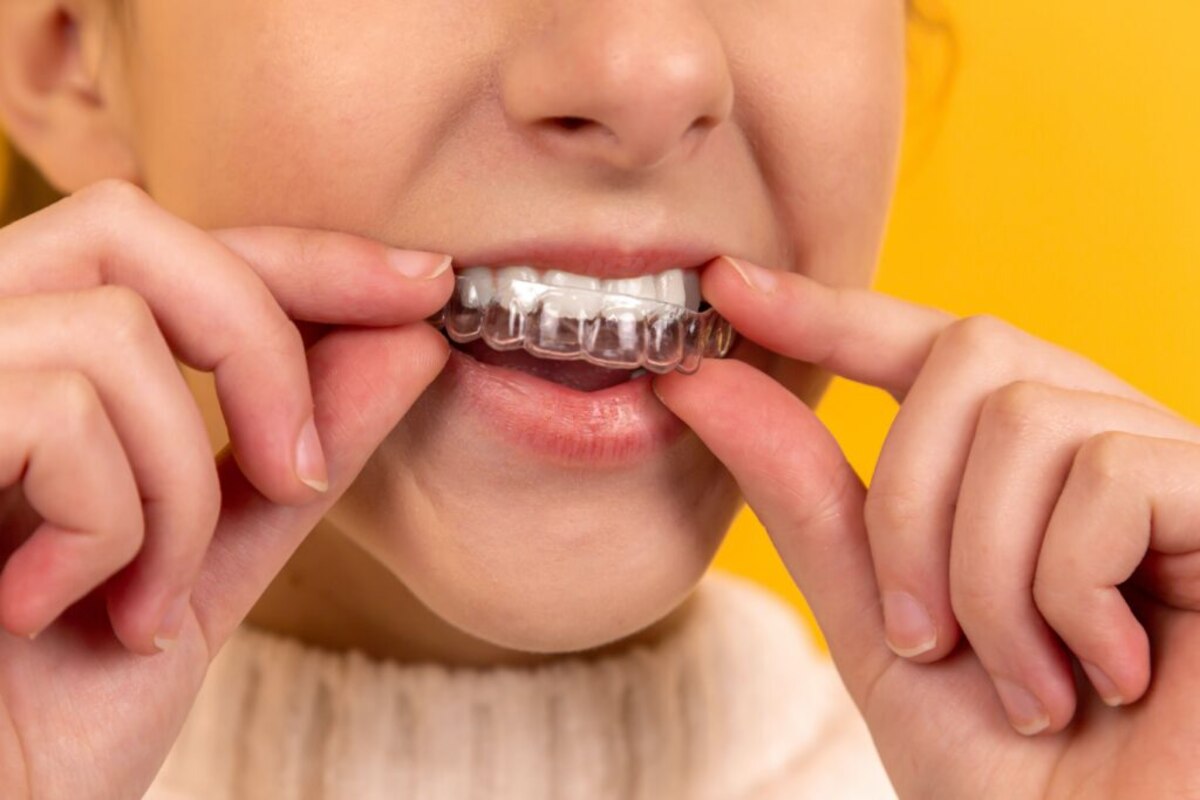
Do you ever wake up in the morning with a headache or sore jaw and not know why? You may be grinding your teeth at night. Bruxism, or teeth grinding, is one of the most common conditions many people unconsciously live with. If left untreated, it can lead to severe dental problems. However, a local dentist near you can help to diagnose and treat this condition before it causes long-term damage.
Bruxism Symptoms and Treatment
Most individuals do not know that they have bruxism until they feel its symptoms. A few of the most common symptoms include jaw pain, headaches, tooth sensitivity, and chipped or worn-down teeth. You may even feel that your jaw is tight or that you can hear clicking when you open and close your mouth. In extreme instances, bruxism may result in the wearing away of dental restorations, including crowns or fillings, and even temporomandibular joint (TMJ) disorders.
Treatment for bruxism varies based on its severity and cause. A dentist can prescribe a custom night guard to wear at night to safeguard your teeth. Stress management, jaw exercises, and correcting any misaligned teeth that might be causing grinding are other treatments. Bruxism, if not treated, can lead to long-term dental problems, so early treatment is important.
What Causes Teeth Grinding?
Bruxism can arise from different factors working together. The most common cause is stress and anxiety, which people largely experience subconsciously when they are tense. Disorders of sleep, such as sleep apnea, can also result in bruxism, as it causes the body to respond to obstruction of the airway with clenching of the jaw. Other factors include misaligned teeth, excessive amounts of caffeine, some medications, and alcohol consumption.
Teeth Grinding at Night Solutions
Bruxism is a condition where people grind or clench their teeth, which is more likely to occur during sleep, so people may not even know they are doing it. The best teeth grinding at night solution is a night guard that is custom-fitted to stay in your mouth during sleep. This protective device stops teeth from touching each other tightly so as to prevent wear out.
Another way of preventing bruxism is through improving sleep habits. Cutting down on caffeine and alcohol, not using screens right before bed, and using relaxation techniques can all be helpful. If you believe that sleep apnea is the cause, then consultation with a professional is needed to deal with the source of the problem.
Bruxism in SW Calgary: Who is at Risk?
Bruxism can affect people of all ages, from young children to older adults. However, certain factors increase the risk of developing the condition. High levels of stress, poor sleep quality, and excessive stimulant consumption are major contributors. Individuals with misaligned teeth or bite issues may also be more prone to grinding.
How to Stop Teeth Grinding
If you suffer from bruxism, you may be wondering how to stop teeth grinding and prevent further damage. While completely stopping the habit can be challenging, there are several strategies to reduce its severity. Wearing a night guard, practicing stress management techniques, and correcting dental misalignment can all help.
Additionally, being mindful of jaw clenching during the day can prevent unconscious grinding. Placing the tongue between your teeth or gently massaging the jaw muscles can help relax tension. If stress is a major trigger, engaging in relaxation activities like yoga or meditation may provide relief.
Bruxism Prevention Tips
Preventing bruxism starts with understanding its causes and making small adjustments to your daily routine. Here are some effective bruxism prevention tips:
- Control Stress – Excessive stress is a primary cause of teeth grinding. Practice relaxation techniques, deep breathing, or meditation to maintain stress at manageable levels.
- Improve Sleep Habits – Getting a good night’s sleep can decrease grinding at night. Adhere to a regular bedtime schedule, avoid drinking caffeine in the evening, and establish a restful sleeping environment.
- Wear a Night Guard – If you grind your teeth at night, a custom-fitted night guard from your dentist can save your teeth from harm.
- Be Aware of Daytime Clenching – Attempt to become aware of jaw clenching during the day and intentionally relax your facial muscles.
- Don’t Chew Other Things – It can create habits that stimulate the grinding by chewing pens, fingernails, or chewing gum during the day. Avoid over-straining your jaw on useless activities.
- Consult Dental Care – If you have a suspicion of bruxism, visiting a dentist for an examination can lead you to the appropriate treatment before complications arise.
By following these steps, you can reduce the impact of bruxism and protect your teeth from long-term damage.
Visit a Dentist for Bruxism Treatment
At Atlas Dental Centre, our experienced dentist in SW Calgary can diagnose bruxism and recommend the best treatment for your needs. Whether you need a custom night guard or professional advice on how to reduce grinding, we’re here to help. Schedule an appointment today and take the first step toward a healthier, pain-free smile!
